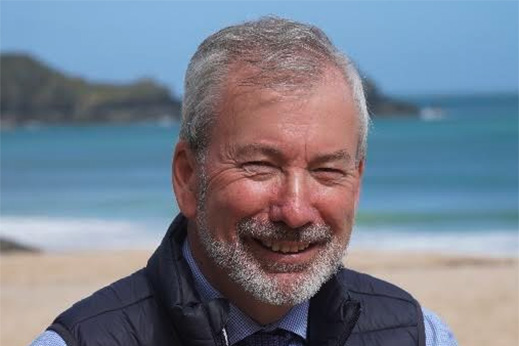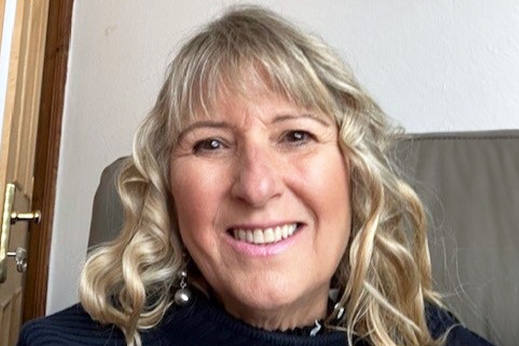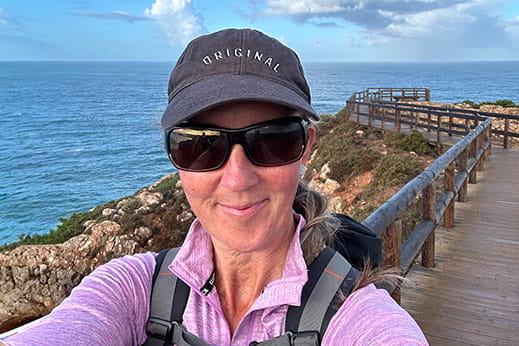
How to holiday in Cornwall responsibly
As much as a Cornwall holiday is about having a break from everyday life, letting your hair down and relaxing, it is equally important to promote sustainability, particularly in regions like Cornwall that rely heavily on tourism. Sustainable tourism minimises negative impacts on an area's environment, culture, and communities while maximising the benefits for local people and economies.
We’ve chatted with locals Malcolm Bell, Chairman of Visit Cornwall, Susan Deakin, Manager of Visit Newquay and Aletha Mays, Head of Communications at the South West Coast Path Association, about the importance of sustainable tourism in Cornwall.
Why is sustainable tourism important?
Sustainable tourism is important for several reasons, from environmental conservation and cultural preservation to ensuring the long-term viability of the tourism industry. For Cornwall specifically, this includes participating in local cultural events, festivals, and workshops that showcase Cornwall's traditional crafts. Attractions like historic houses, castles, and museums offer opportunities to learn about Cornwall's rich history and heritage.
Malcolm discusses how his work at Visit Cornwall supports this, “[We] work with the industry to keep it future-proofed, things like the development of sustainable tourism.”
How you can help sustainable tourism in Cornwall
- Support local businesses: If you’re self-catering, consider shopping at the farmers' markets, craft fairs, and independent shops. When out and about exploring Cornwall, choose restaurants that serve locally sourced ingredients and support sustainable fishing practices
- Respect nature and wildlife: When exploring Cornwall's natural landscapes, follow ‘Leave No Trace’ principles to minimise your impact on the environment. Stay on designated trails, avoid disturbing wildlife, and avoid picking flowers or removing natural objects
- Take public transport to travel around Cornwall and our holiday parks rather than driving to reduce carbon emissions. Cycle around Cornwall to take in the sights and get around. Again, this is a more sustainable method of travel than driving and a really fun family activity, too!

Susan tells us, “We would promote taking your rubbish home, [like] disposable barbecues, then you definitely [need] to take it home.”
Aletha echoes this statement, “I think the most important thing is to leave only footprints. People will light fires and use disposable barbecues [but] a small spark from that can start fires and damage fragile habitats. If you use a disposable barbecue please take it with you and safely dispose of it.”
- Learn about Cornwall's culture and history: Visit museums, historic monuments, and cultural attractions to learn about Cornwall's rich cultural heritage and history
- Support conservation organisations: Consider supporting conservation organisations and initiatives in Cornwall through donations or participation in fundraising events. Many local organisations work to protect Cornwall's natural environment, wildlife, and cultural heritage, and your support can help them continue their important work
- Make a fun family activity out of beach cleaning, trying to identify what litter you collect
When staying with Parkdean Resorts, we are as committed to sustainability and the environment as you are.
Local insiders
 Malcom Bell MBE
Malcom Bell MBE
Chair
VisitCornwall.com
Malcolm has lived in Cornwall his entire life, growing up in Truro. He has worked on the Cornish Tourist Boards for the last 25 years (14 years on VisitCornwall).
Malcolm’s main objective and role is to inspire people to come to Cornwall for the first time or keep returning. He wants to work with the industry to future-proof Cornwall for tourism and be an advocate for Cornish tourism.
 Susan Deakin
Susan Deakin
Manager
VisitNewquay.org
Susan has lived in Newquay for over 50 years, as well as starting her family there and raising her two children.
Susan’s main objective and role with Visit Newquay is to continue to restore the region to its former glory as a tourist destination for families to make memories.
 Aletha Mays
Aletha Mays
Head of Communications
southwestcoastpath.org.uk
Aletha has lived in West Cornwall for years and worked with the South West Coast Path Association for nearly three years.
Her mission is to highlight the South West Coast Path and the charity behind sustaining it.

